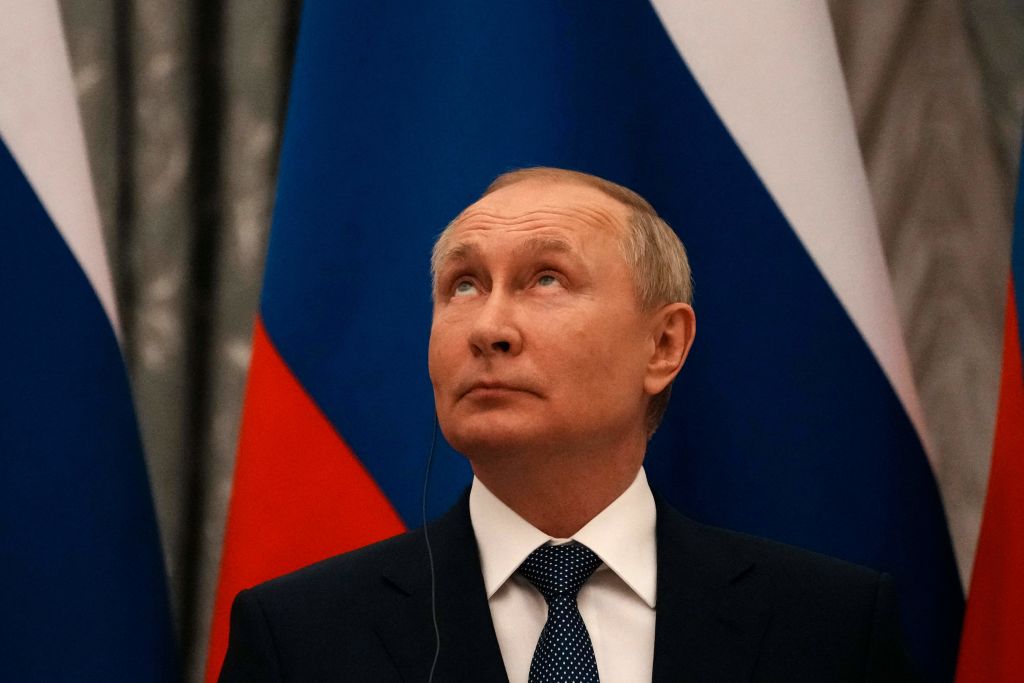Per S&P Vladimir Putin’s Russia is already in default: the agency has in fact issued a “selective default” rating on the country’s public debt, after the Kremlin announced last week that it had repaid the debt owed to foreign holders of Russian sovereign bonds, of approximately 650 million , in rubles. Moscow was forced to default due to the US Treasury’s decision to ban access to Russian funds deposited in US bank accounts, after allowing it in the previous weeks. Result:
The same JP Morgan, a bank that had managed the previous payments to the bondholders, sending the Kremlin dollars to an agent who had then paid the figures to the holders of the Russian bonds, was stopped by the Treasury. Washington’s goal is to force Moscow to choose whether to access the dollar reserves in Russia to avoid default or whether to use the funds to continue financing the war, in short, to force Moscow to reduce spending on financing the war. in Ukraine.
With the access ban established by the Treasury, the Russian Ministry of Finance was thus forced to pay in rubles the amount owed to the holders of two eurobonds maturing in 2022 and 2042 denominated in dollars, as, according to Reuters, “a foreign bank it refused to proceed with the order to pay 649 million dollars to the holders of the sovereign debt ”.
But, S&P Global warned, investors holding Russian government bonds, in converting payments received in rubles into US dollars, will most likely not be able to get the same amount owed to them by Moscow: a factor which is equivalent, for the ‘in fact, to a default, which would be official once the grace period of 30 days has elapsed.
This would be Russia’s first default on a debt contracted in foreign currency in more than a century: the last default occurred with the Bolshevik revolution of 1917, when the Soviet Union was born. By the late 1990s, Moscow had defaulted on ruble-denominated debt but not on foreign currency-denominated government bonds.
But it is also true that the Kremlin has no intention of hoisting the white flag, given that just yesterday came the announcement of the increase in the government’s reserves of 273.4 billion rubles (the equivalent of $ 3.2 billion), due to sales of oil and gas (that oil and gas that Europe continues to buy). The funds, Moscow announced in a statement, will be used “to launch measures aimed at ensuring the stability of the economy in the face of foreign sanctions”. The increase in reserves, it continues, will take place through the “additional turnover deriving from oil and gas sales in the first quarter of 2022”. However, S&P is skeptical a priori, so much so that it wrote in its note that it does not believe that the Kremlin will be able to convert the payments already made to the bondholders in rubles into dollars. “Sanctions against Russia are likely to be further increased in the coming weeks, hampering Russia’s willingness and technical capabilities to honor the terms and conditions of its obligations to the holders of its foreign debt.”
Russia’s default is considered “almost safe” by Mitu Gulati, a professor of law specializing in sovereign debt at the University of Virginia interviewed by the Quartz website. And the market is practically sure of a Moscow default given that last week from the trend of credit default swaps (credit default swaps), the cost of insuring against the risk of a default, a probability of a Russian default of 99% emerged. At the same time, a recession of the Russian economy is now considered practically safe – banned by the whole world (or almost).
The Kremlin has meanwhile announced that there will be no auction of Russian government bonds until the end of 2022 due to prohibitive costs. Bloomberg reports, referring to the statements that, according to the Russian daily Izvestia, the Russian Finance Minister Anton Siluanov would have released: “We have no intention of going to the local market or to foreign markets this year – said Siluanov to the newspaper – It makes no sense, given that the financing costs would be cosmic ”.
Interviewed by Bloomberg Todd Schubert, head of the fixed income division of Bank of Singapore, however, remarked that Russia’s public accounts are still solid:
“Given the combination of a solid financial position and the ability to still generate substantial revenue from hydrocarbon sales, the government has the flexibility to abstain from public debt markets in the foreseeable future.” However, he noted that “the question is not whether Russia chooses to issue bonds or not, the question is whether or not it can. Given the circumstances, there is simply no market for any primary issue (of Russian sovereign debt) ”.
Having said that, from a legal point of view, the Kremlin could contest the default, should the event occur, citing the alleged impossibility of fulfilling its obligations (due to sanctions?). Gulati points out that, when the unexpected impossibility is due to a war, usually the country that requests to be exempted from paying a debt and the consequent default is certainly not the same country that caused the war. Of course, Moscow could reply that it was the sanctions, not the war, that made it impossible to repay the amount owed to the bondholders. But his position is unlikely to be upheld by any Western court. Failure to pay the amount due in dollars could at this point lead Moscow to default, after a grace period of 30 days “.
